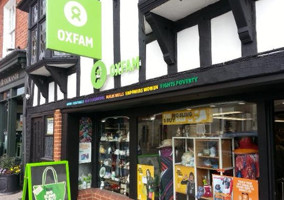Most councils are refusing to offer full business rates relief to charity shops, and some are charging "crippling" sums for waste disposal, research has found.
Some 401 of the 405 local authorities in England, Scotland and Wales responded to requests from the Charity Retail Association under the Freedom of Information Act.
Of these, 51 per cent said they do not offer full business rates relief to any charity shops in their area, while 42 per cent offer no additional rate relief at all to shops in their area.
Charity shops received a mandatory 80 per cent discount on their business rates, but their local authority can decided whether or not to offer any addition relief on the remaining 20 per cent.
None of the 32 London boroughs offer the full rate relief to all the charity shops in their area, while 60 per cent offer no additional rate relief at all.
Two thirds of councils in Yorkshire and the Humber offer no additional rate relief to any charity shops in their area.
By contrast, Scottish unitary bodies are the most generous type of council in terms of business rates relief – with about a third offering 100 per cent relief to all charity shops in their area.
In its report, the CRA said the variation between councils is confusing for charities and calls for mandatory 100 per cent rate relief for all charity shops.
It says: “Where councils do give charity shops this extra form of support their rules and procedures are rarely clear and transparent and often rely on personal relationships and individual lobbying by charity shops.
“The cost to charities of applying for and appealing discretionary rate relief decisions takes additional funds from their cause, and local authorities also have to absorb the cost of administering such a system.
“We believe it would be simpler, fairer and more cost-effective to move to a mandatory system of 100 per cent rate relief for all charity shops, recognising their wide social benefits and enabling them to do even more for good causes across the country.
“However, in the meantime we believe the current system would gain much more charity and public trust if it was clear and transparent and available publicly.”
Waste charges
The majority of disposal authorities offer a free disposal service for charity shop household waste, the research found.
However, 19 per cent of the 205 authorities surveyed said they did not accept charity shop waste while 18 per cent said they only accepted it at some sites or on certain days.
Of the 171 authorities that do accept charity shop waste, the majority, 118, do not charge.
However, 28 do impose a levy and 26 partially charge, which means they might accept a few tonnes of waste from a charity shops for free but charge for any in excess of that.
CRA says in the report: “Many councils levy charges for this service, a service which we would hope would always be free given the huge contribution our sector makes to keeping waste above ground.”
Meanwhile, 50 respondents run a partnership with charities at HWRCs whereby the charity can take some items to sell in their shops.
Clothing collections
Some 70 per cent of the 401 councils that responded to the CRA said they would not rent out clothing banks to charities.
However, 155 councils do operate clothing banks and 53 of these do not charge.
The remaining 102 make a profit from the clothing banks they own either from charging licence fees or by selling on the product collected themselves.
Those than run these for profit get £29,158 on average in profit each year.
The CRA report says: “As they are increasingly incentivised to generate their own income, many councils have sought to profit from undertaking activities traditionally carried out by charity shops.
“These may threaten charity shops by undermining their ability to generate stock, something vital to their ability to trade.”
Related articles












